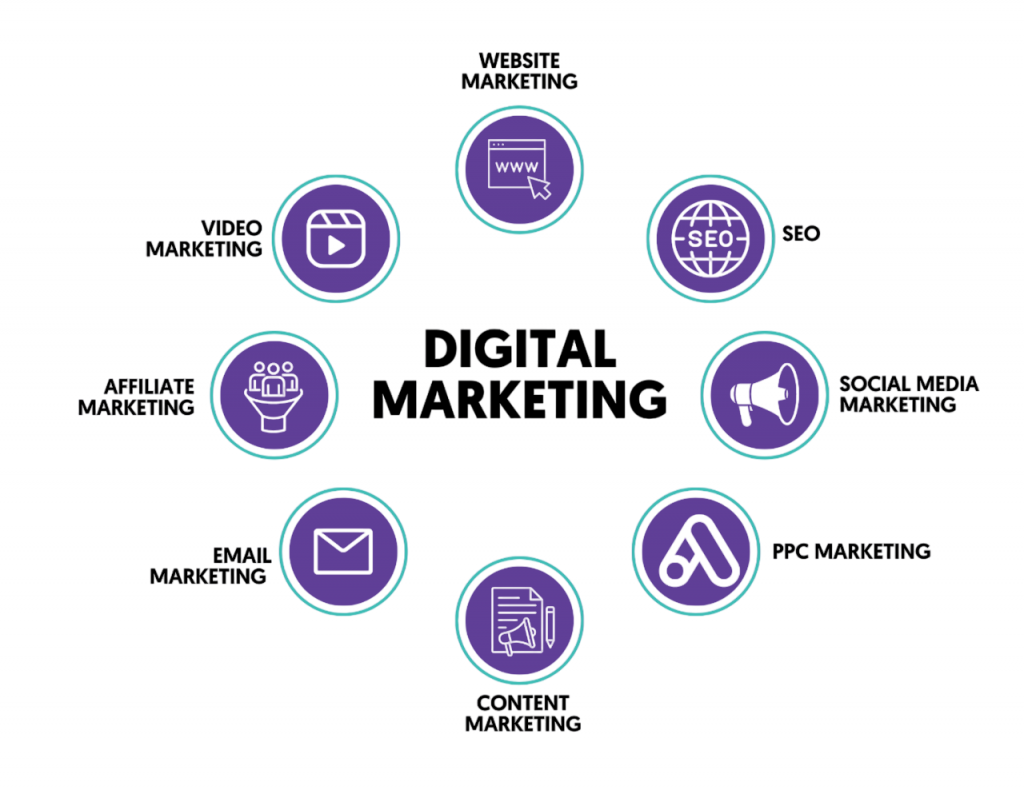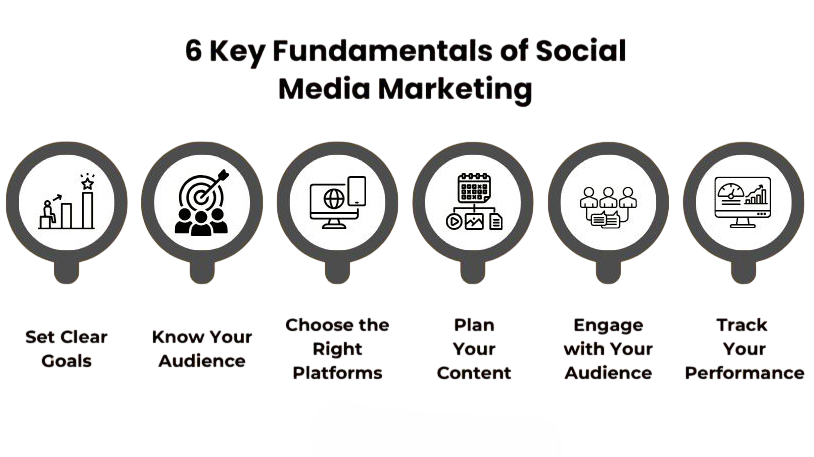
- Introduction
- What is Digital Marketing?
- What is Social Media Marketing?
- Key Differences Between Digital Marketing and Social Media Marketing
- Channels Included in Digital Marketing vs Social Media Marketing
- Goals and Objectives
- Strategies and Techniques
- Benefits of Each
- Which One Should You Choose?
- Conclusion
Introduction
In today’s digitally connected world, businesses have numerous ways to reach their customers online. Two terms often surface when discussing online business growth: Digital marketing and social media marketing. While they might sound similar and often get used interchangeably, they are not the same an important distinction clarified in Digital Marketing Training, where learners explore nuanced differences between keywords, search terms, and search themes, understanding how each functions within campaign targeting, audience intent, and algorithmic optimization to improve precision and performance across digital platforms. Understanding the distinctions between digital marketing and social media marketing is essential for marketers, business owners, and entrepreneurs to allocate their resources effectively and implement the best strategies for their goals. Digital marketing is a broad concept that covers all marketing efforts using the internet and electronic devices. Social media marketing, on the other hand, is a subset of digital marketing focused specifically on marketing through social media platforms. This article will explore each in detail, outline their differences, similarities, channels, goals, strategies, and help you decide which marketing approach fits your business best.
Ready to Get Certified in Digital Marketing? Explore the Program Now Digital Marketing Online Training Offered By ACTE Right Now!
What is Digital Marketing?
Digital marketing is the practice of promoting products, services, or brands using digital channels and technologies. It encompasses all online marketing activities that help a business connect with its target audience through various internet-enabled devices such as computers, smartphones, tablets, and even smart TVs. Digital marketing is an umbrella term that includes multiple disciplines, each with unique approaches and goals from SEO and PPC to email automation, influencer outreach, and analytics-driven storytelling all of which rely on strategic Content Distribution to ensure that valuable content reaches the right audience at the right time, maximizing visibility, engagement, and ROI across owned, earned, and paid channels. The core idea behind digital marketing is to leverage digital technologies primarily the internet to reach potential customers anytime and anywhere. It is data-driven, allowing businesses to track, measure, and optimize campaigns for better performance and return on investment (ROI).
The Components of Digital Marketing
Digital marketing includes several channels and strategies, such as:
- Search Engine Optimization (SEO): Optimizing websites and content to rank higher in search engine results pages (SERPs), increasing organic traffic.
- Pay-Per-Click Advertising (PPC): Running paid ads on search engines like Google Ads or social platforms, where advertisers pay for each click.
- Email Marketing: Sending targeted promotional messages, newsletters, and offers directly to an email list to nurture leads and drive sales.
- Content Marketing: Creating valuable content like blogs, videos, infographics, and podcasts to educate and engage the audience.
- Affiliate Marketing: Partnering with affiliates who promote your products in exchange for a commission on sales.
- Mobile Marketing: Using SMS, push notifications, and in-app ads to reach mobile users.
- Social Media Marketing: Leveraging social networks to promote brands, products, and services.
Digital marketing integrates these channels into a cohesive strategy designed to guide prospects through the sales funnel from awareness to consideration to conversion.

Why Digital Marketing Matters
The rise of the internet and mobile usage means consumers spend a significant amount of time online researching products, comparing options, and making purchases. Digital marketing enables businesses to reach these consumers in their digital journeys, deliver personalized experiences, and compete in an increasingly crowded marketplace.
What is Social Media Marketing?
Social media marketing (SMM) is a specialized branch of digital marketing focused solely on marketing via social media platforms. Social media marketing involves creating and sharing content on social networks to build brand awareness, engage with the audience, generate leads, and foster customer loyalty core objectives exemplified in Big Brands Transforming Experience, where companies like Duolingo, Nike, and Starbucks leverage storytelling, influencer partnerships, and real-time engagement to create memorable digital experiences that deepen customer relationships and drive long-term growth. Popular social media platforms used in SMM include:
- Facebook: Largest user base with highly targeted ad capabilities.
- Instagram: Visual storytelling with photos and videos, popular among younger demographics.
- Twitter: Real-time engagement and trending topics.
- LinkedIn: Professional networking and B2B marketing.
- TikTok: Short-form video content attracting Gen Z and millennials.
- Pinterest: Visual discovery platform, ideal for lifestyle and product promotion.

The Role of Social Media Marketing
SMM’s primary focus is on social interactions connecting with customers, responding to comments, and encouraging sharing. It’s not only about paid ads but also about organic reach through authentic content, influencer collaborations, and community management. Through social listening and engagement, brands can gain valuable insights into customer sentiment and preferences. Social media marketing blends creativity and strategy to humanize brands and build relationships with consumers. It’s less about direct selling and more about engagement, trust-building, and reputation management.
To Explore Digital Marketing in Depth, Check Out Our Comprehensive Digital Marketing Online Training To Gain Insights From Our Experts!
Key Differences Between Digital Marketing and Social Media Marketing
The core difference between digital marketing and social media marketing lies in scope. Digital marketing is broad and encompasses all digital channels, including social media. Social media marketing is a subset within digital marketing that focuses exclusively on social media channels.
- Scope and Channels: Digital marketing includes SEO, PPC, email, content marketing, and social media marketing among other tactics. Social media marketing is only about marketing on social platforms.
- Goals: Digital marketing aims at overall online visibility, traffic, lead generation, and sales. Social media marketing primarily targets brand awareness, engagement, and customer loyalty through social interaction.
- Tactics: Digital marketing uses a mix of organic and paid strategies across multiple platforms to nurture customers at different funnel stages. Social media marketing tactics involve content creation, community management, and paid social ads targeted specifically at social platform users.
- Metrics: Digital marketing metrics cover traffic, conversion rates, bounce rates, email open rates, and ROI. Social media marketing metrics focus more on likes, shares, comments, follower growth, engagement rates, and social sentiment.
Channels Included in Digital Marketing vs Social Media Marketing
Digital Marketing Channels:
- SEO: Optimize website content and structure for better search rankings
- PPC: Ads on search engines and display networks
- Email Marketing: Sending newsletters and campaigns
- Content Marketing: Blogs, videos, eBooks, infographics
- Affiliate Marketing: Third-party promotions
- Mobile Marketing: SMS, push notifications, app ads
- Social Media Marketing: Organic posts and paid ads on social platforms
Social Media Marketing Channels:
- Facebook: Ads and organic posts
- Instagram: Stories, reels, and ads
- Twitter: Tweets and trends
- LinkedIn: B2B content and ads
- TikTok: Short videos and influencer collaborations
- Pinterest: Visual pins and promoted content
Looking to Digital Marketing Training? Discover the Digital Marketing Expert Masters Program Training Course Available at ACTE Now!
Goals and Objectives
Digital marketing’s goals vary widely depending on business objectives but often include, In today’s competitive digital environment, effective digital marketing is essential for business success. Our approach focuses on driving website traffic through targeted campaigns that increase brand visibility and generate high-quality leads and conversions core outcomes emphasized in Digital Marketing Training, where learners master SEO, paid media, and content strategies to attract the right audience, optimize conversion funnels, and build scalable growth across digital channels. By using advanced marketing techniques, we grow email subscriber lists and improve customer retention. This overall strategy helps businesses create meaningful connections with their target audience, turning casual visitors into loyal customers and maximizing digital performance.
Social media marketing focuses more on:
Social media acts as an important platform for brand management. By building brand awareness and encouraging audience engagement, organizations can forge strong connections that go beyond traditional marketing. These online channels allow companies to promote social sharing and viral content while also managing their reputation and providing great customer service. Through genuine interactions, businesses can turn social media from just a communication tool into a lively space that builds trust, boosts brand messaging, and offers immediate support to their audience.
Strategies and Techniques
Digital Marketing Strategies:
Our complete digital marketing approach uses multiple channels to boost engagement and conversions. We conduct careful keyword research for SEO and PPC campaigns, which helps us target potential customers and improve visibility. We also use smart email nurturing sequences to guide leads through the conversion funnel. Additionally, we create valuable content that directly connects with specific buyer personas tactics aligned with Local SEO Tips To Rule Google Maps, where marketers learn how to combine geo-targeted visibility with personalized engagement strategies to attract nearby customers, build trust, and drive high-intent conversions through integrated local and inbound marketing efforts. To get the most from our investment, we run retargeting ads that bring back visitors who abandoned their carts and other website browsers, making sure we don’t miss any opportunities. We track performance through detailed analytics, which allows us to adjust and improve our campaign strategies, achieving measurable results and ongoing growth.
Social Media Marketing Strategies:
To maximize social media impact, we have developed a strategy that focuses on consistent, high-quality content delivery. We establish a regular posting schedule and use trending hashtags to increase our brand’s digital visibility. Our approach goes beyond simple broadcasting. We actively engage followers by leaving meaningful comments and sending direct messages to build real community connections. We recognize the strength of influencer partnerships, so we work with key industry figures to extend our reach and credibility. Along with these organic efforts, we run targeted paid campaigns that focus on specific demographics and interests, ensuring our message connects with the most relevant audience segments. This varied approach allows us to create a lively, interactive social media presence that boosts engagement and brand awareness.
Preparing for Digital Marketing Job Interviews? Have a Look at Our Blog on Digital Marketing Interview Questions and Answers To Ace Your Interview!
Benefits of Each
Digital Marketing Benefits:
- Wider reach across many platforms and channels
- Highly measurable results and ROI tracking
- Ability to target prospects at different buying stages
- Supports multi-channel marketing strategies
Social Media Marketing Benefits:
- Direct two-way communication with customers
- Potential for viral content and organic reach
- Builds community and brand loyalty
- Real-time feedback and brand sentiment monitoring
Which One Should You Choose?
Choosing between digital marketing and social media marketing depends on your business type, goals, and target audience. If you want a comprehensive digital presence that includes search engines, email, and multiple marketing touchpoints, a full digital marketing strategy is essential an integrated approach taught in Digital Marketing Certification Process, where learners build expertise in SEO, email marketing, content creation, and inbound strategy to craft cohesive campaigns that attract, engage, and convert across every digital channel. If your goal is to build engagement and awareness within social communities, social media marketing is your focus. For most businesses, an integrated approach combining both digital marketing and social media marketing delivers the best results leveraging the strengths of each channel.
Conclusion
Digital marketing and social media marketing play complementary yet distinct roles in the online marketing ecosystem. Digital marketing encompasses a wide array of tactics and channels designed to attract, engage, and convert customers online. Social media marketing zeroes in on building relationships and fostering engagement through social platforms a strategic focus emphasized in Digital Marketing Training, where learners explore tools like Sprout Social, Statusbrew, and Planable to manage conversations, personalize outreach, and cultivate loyal communities through real-time interaction and data-driven engagement strategies. By understanding the difference between these two marketing approaches, businesses can allocate resources strategically, design effective campaigns, and maximize their online growth. Whether you choose to specialize in one or combine both, mastering these disciplines is key to thriving in today’s digital economy.




